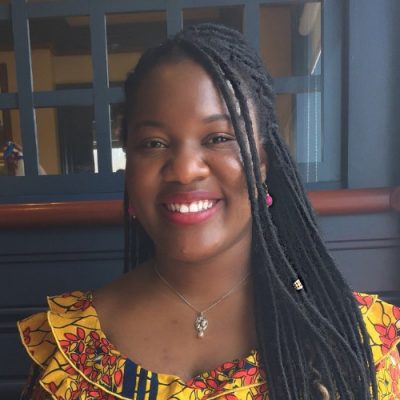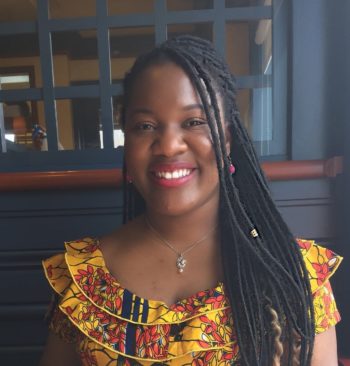The Path Less Travelled: Third-Year Student Accepted to Med School
By Leah Coppella
19 June, 2019
When Kika Otiono was in Grade 12 in Ottawa, most of her friends interested in the pre-medicine path accepted offers to well-known science universities and entered large programs like health science or biochemistry with clearly defined routes to med school.
Otiono took the path less travelled. And it has made all the difference.
Otiono received a third-year undergraduate offer of admission to the Michael G. DeGroote School of Medicine at McMaster University. She’ll start this August as a 20-year-old.
A Nigerian-Canadian who grew up in Edmonton and Ottawa, she has known for as long as she can remember that she wanted to be a doctor.
She chose Carleton’s University’s Bachelor of Humanities and Biology program because it is unique and offered the chance to prepare for bigger things.
“An interdisciplinary education, a lot of reading as part of The Great Books program, and a tight-knit and diverse community” is how Otiono describes Carleton’s Humanities program.
Throughout her three years at Carleton, Otiono worked as a telecounsellor at the Undergraduate Recruitment Office; an undergraduate research assistant at the Department of Biology and an academic facilitator at the Centre for Student Academic Success.

Kika Otiono
“I also spent a lot of my free time at Carleton,” Otiono adds. “The Humanities program is pretty small, but I got involved early on in our community as the treasurer and assistant editor of our annual literary journal, NORTH, and this year I chaired the College of Humanities Colloquium Committee.”
Otiono even launched a new club on campus, Carleton Women in Medicine and Health, supporting aspiring female professionals and presiding over its executive committee.
And it didn’t stop there. Otiono volunteered time between classes for other causes on campus including mentorship, note-taking, and tutoring.
But on May 14, 2019, Otiono’s usual day of classes, work and volunteering was interrupted. Soon after a breakfast of oatmeal and plantains, Otiono received the news that she’d been offered admission to med school.
“To say that I was delightfully shocked when I got the positive email is an understatement. It felt surreal, I kept asking my dad to reread the email to make sure I wasn’t reading it wrongly!” Otiono says.
That email symbolized a lot. Not only did it represent the hard work and dedication Otiono had put into her undergraduate studies, it spoke to the balance she had to find between academic goals and her desire to get involved in campus initiatives.
“On some days, it was quite exhausting going from work to school to volunteering – I often spent 12 to 14 hours on campus, and then I’d take a one-hour bus ride home,” she says. “I think that’s the other part of success that people can forget – the immense amount of work that went into it.”
Her parents had a major impact on the way that she learned to stay true to her goals.
“[My father] inspires me every day to study not only for grades, but for the achievement of knowledge,” Otiono says. “[My mother] was the emotional supporter for my least motivated days. She was always providing a shoulder to lean on and a cup of tea for anxious nights.”
When Otiono looks back at her Carleton journey, her consistency and self-growth make her the most proud. And even though she is leaving the degree program early, she got a lot out of it.
She says that doing a combined honours in Humanities and Biology pushed her to think creatively and thoughtfully.
“Whether I had to write a philosophy paper or a biochemistry lab report, I think my program at Carleton encouraged me to adapt to new situations and to communicate my ideas clearly, systematically and confidently,” she says.
The critical reading skills that she developed allowed her to read some of the most difficult texts of Western intellectual history and understand the author’s argument, as well as her own response to it.
The program also empowered her as a citizen. Otiono says the cycle of reading, contemplating and synthesizing complex ideas from various philosophical movements made her more empathetic.
But none of this came without doubt. When Otiono accepted her offer to Carleton for an arts degree three years ago, she was nervous she’d made the wrong decision.
“Now, at the other side of that decision, I think studying Humanities has prepared me more than anything else for a career as a physician,” she says. “From arguments in our discussion group about Aristotle’s virtue ethics, to writing papers on enlightenment economics, I think I am leaving my program with an arsenal of skills and abilities that is only possible with an arts education.
“Admissions committees across the country have become increasingly aware of the need to matriculate students with excellent communication, literacy, and critical thinking skills.”
Source: Carleton Newsroom

